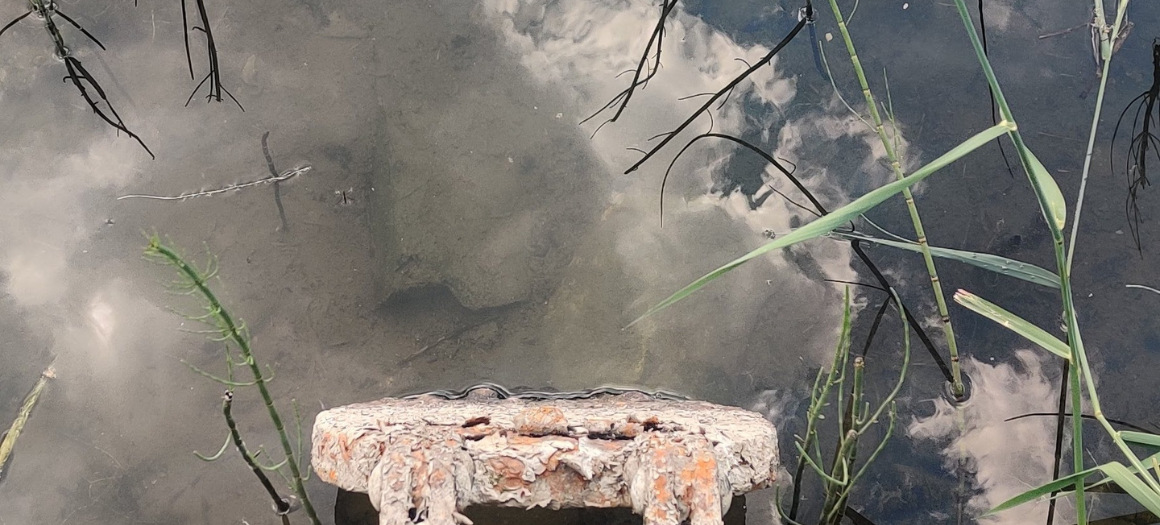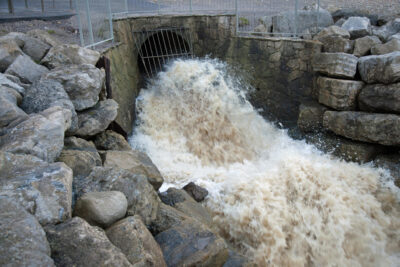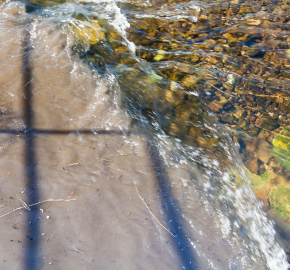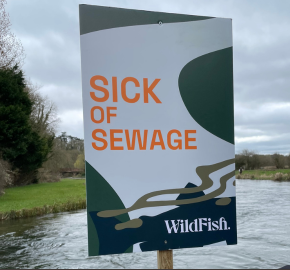BBC Panorama turns spotlight on water pollution scandals

The Environment Agency must answer serious questions over its woeful response to pollution incidents, attending only 6 out of 931 reported water company incidents in the northwest over three years.
In the devastating programme broadcast by BBC Panorama today (4 December 2023) accusations are levelled at the Environment Agency about their handling of reported pollution events, and their monitoring of water companies’ sewage treatment works.
The programme focuses on several incidents including a significant fish kill on Cunsey Beck, Cumbria, in June 2022. The programme highlights huge failings in Environment Agency investigations into whether sewage discharges, from a United Utilities’ treatment works, were the cause of the pollution
Guy Linley-Adams, solicitor for WildFish and contributor to the programme, said: “The BBC Panorama investigation raises serious questions not only about the specific incident near Windermere but also generally as to the Environment Agency’s ability – and indeed its willingness – to police the privatised water companies, concerning the treatment of sewage, sewage they are paid to treat by bill-paying customers.”
On top of the failure to police sewage treatment works and control the use and abuse of storm overflows by water companies, the Agency’s woeful response to reports it receives of pollution incidents has also been exposed by the BBC programme.
If the Environment Agency can only turn up to 6 out of 931 reported pollution incidents, it doesn’t take a genius to spot that polluting water companies will be getting away with it.
Guy Linley-Adams
Solicitor at WildFish
Guy continued: “If the Agency is not there to gather evidence, what chance is there or any meaningful enforcement action? It is a complete mystery to me how staff at the Environment Agency can be happy with this state of affairs”.
WildFish campaigning on the state of the Environment Agency
WildFish seeks a return to a proactive, robust, and independent regulator to control pollution of English rivers, lakes and coastal waters. To coincide with the Agency’s 25th anniversary, in 2021, WildFish published a detailed report into the failings at the Agency, which concluded that:
- in the 25 years since the Agency was established it has had ample time to use its statutory powers to protect and enhance the freshwater environment, as per its statutory purpose given to it in 1995;
- however, progress in improving the overall quality and ecological status of the freshwater environment in England has stalled;
- despite a legal requirement on the Agency, that it establishes and maintains monitoring programmes to give a coherent and comprehensive overview of water status across England, the monitoring efforts being made by the Agency are inadequate and getting worse;
- the introduction of operator self-monitoring (OSM) in 2009, whereby polluters monitor their own discharges and report themselves if they breach permits, has dramatically reduced the deterrent to would-be polluters and has opened the door to cheating, such as that undertaken by Southern Water over many years;
- the rate of inspection carried out by Agency staff at regulated sites that have the potential to cause pollution has reached an extremely low level;
- the Agency’s enforcement and prosecution record showed that the number of prosecutions conducted by the Agency has dwindled dramatically over time with the rate of decline increasing rapidly since 2012/2013.
As the BBC Panorama programme shows, the Agency remains a pale shadow of the National Rivers Authority that it replaced in 1995.
Nick Measham
CEO, WildFish
Nick continued: “As it stands, it is unlikely that anything more than the further managed decline in the quality of the freshwater environment can be achieved with the Environment Agency as it is. Politicians, of whichever party, need to get a grip on this urgently.
WildFish campaigning on sewage pollution
A judicial review brought by WildFish earlier this year (2023) clarified a 1994 law on sewage treatment (the Urban Waste Water Treatment Regulations 1994) which restricts the circumstances in which untreated sewage can be released into rivers via storm overflows.
That 1994 law requires water companies to use best techniques, not involving excessive cost, to prevent untreated sewage being released, unless there is exceptional weather. Exceptional weather does not include normal or usual rainfall. It certainly does not include dry weather conditions, although we have seen many water company sewage pipes discharging untreated sewage into rivers in dry conditions over recent years.
The case confirmed that sewage treatment infrastructure needed to comply with the 1994 law must be funded by the water companies and not by customers through their water bills.
Following the case, WildFish recently sent formal legal letters to the Environment Agency and OFWAT setting out exactly what the law requires them to do to end unlawful sewage discharges. The letters warn both that if they do not take urgent steps to comply with the law themselves and to enforce the law against water companies, a further legal challenge will likely follow from WildFish.
The Office for Environmental Protection (OEP) investigation of WildFish sewage complaint
In parallel to the judicial review challenge (2022) WildFish made a formal complaint to the Office for Environmental Protection. The complaint questioned the failure of OFWAT to ensure investment by water companies to ensure sufficient capacity to treat normal flows of sewage at their sewage treatment works. This led to the OEP announcing its first-ever investigation into the regulation of combined sewer overflows.
As part of that investigation (linked here), the OEP has identified possible failures to comply with environmental law by DEFRA, the Environment Agency and OFWAT, stating that “we believe that there may have been failures to comply with environmental law by all three of the public authorities”.
WATCH NOW: The Water Pollution Cover-Up



Well done, once again, Wildfish for keeping this abhorrent practice in the public eye. It is good that Wildfish and others concerned about the conditon of our waters are bringing the water companies and the Environment Agency to account. What concerns me equally though is that we cant trust the water companies to undertake their duties, so what are they doing/not doing with our fresh water supplies. Is our fresh water consistently safe to drink at all times across the country? And who is monitoring that?
Thanks for the reminder .
I read the online report this morning. It would appear that United Utilities have effectively been self regulating in that they can decide which incidents are serious enough for the EA to attend! As a result the EA only attended 6 out of 931 reported incidents from 2020 to the end of 2022 and were identified by the EA as the top performing water company. The reward for this excellent performance is that they will be allowed to raise £5.31million by increasing customers’ bills next year! I’m so glad to be a United Utilities customer.……CharlesAbbott
As usual this doesn’t surprise me. Who would think water companies would cheat when marking their own homework. The government should make this highly important to rectify and deal out massive fines not to be paid by the customer but out of the massive profits it’s being paying itself and investors. If the environment agency are to be trusted I do worry about our fresh water coming out of our taps no wonder there are so many people getting ill. Why is the cancer rate so high it makes you wonder if there could be a link
I believe that the Water companies should be prosecuted under the Health an Safety laws as these laws carry a prison sentence in extreme cases. That is why the directors of companies ensure they have a good H&S systems in place. What could be more unhealthy than swimming or falling into a river polluted by raw sewerage. I heard that in the local paper, there was a story of a girl was in Salisbury hospital after wild swimming in the River Avon near Salisbury. Fancy living with a river flowing at the end of your garden that has raw sewerage pumped into it upstream of the property.